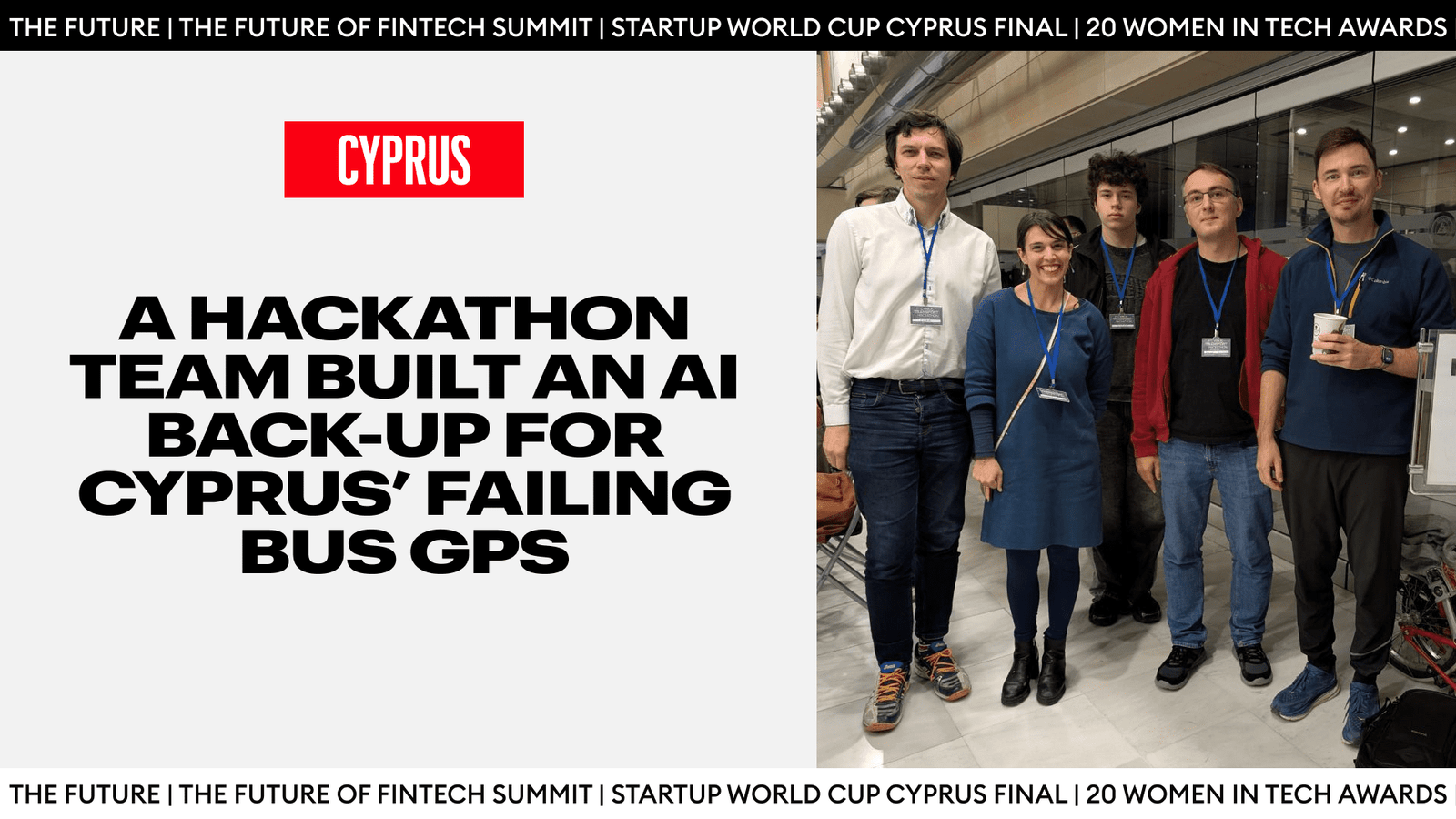The world of technology and innovation is changing fast. In this section, we try to summarise the biggest news around startups, investments, technology and many other topics we highlighted this week.
New startups from unexpected regions are reshaping markets. Established giants are making bold moves to stay ahead. From cybersecurity firms in Russia thriving under sanctions to the rise of AI-powered coding tools, the global tech landscape is being rewritten.
Follow THE FUTURE on LinkedIn, Facebook, Instagram, X and Telegram
Venture capital is flowing into regions once overlooked, and big names like Mastercard are snapping up promising startups. Meanwhile, battery innovators like Northvolt face tough choices as they balance rapid growth with operational challenges. These shifts show the ever-evolving nature of today’s business world, where adaptability and innovation are the keys to success.
Russian Tech Startups and Cybersecurity Firms Thrive Amid Sanctions
Amidst a challenging international landscape shaped by the imposition of sanctions, Russian tech startups and cybersecurity firms have demonstrated remarkable resilience and adaptability. Despite the economic constraints that sanctions typically impose, these companies have not only survived but also expanded, leveraging their expertise to cater to domestic needs and regional markets. As international players withdraw, Russia’s local startups have been quick to fill the vacuum, with cybersecurity becoming a pivotal industry. With a growing demand for secure digital infrastructure and protection against rising cyber threats, these companies are becoming indispensable to both the public and private sectors, reinforcing Russia’s self-reliance in technology.
The current geopolitical environment has accelerated Russia’s pivot towards strengthening its tech ecosystem, particularly in sectors like artificial intelligence, blockchain, and cybersecurity. Government-backed initiatives and funding have bolstered the growth of these industries, encouraging innovation while insulating them from external dependencies. However, the long-term sustainability of these businesses will hinge on their ability to continue innovating in a global market that may remain fragmented for the foreseeable future. The evolving landscape presents a unique opportunity for Russia to emerge as a tech and cybersecurity hub, albeit with certain limitations on international collaboration and expansion.
Cyprus Startups Take on San Francisco in Global Showdown
Two startups from Cyprus are making waves on the global stage as they compete for the prestigious Startup World Cup in San Francisco. Representing the island’s growing innovation scene, these companies have already surpassed tough competition in earlier rounds. Yesterday, the semi-finals were held, and Fincom, the winner of the Startup World Cup Limassol, advanced to the final round. This victory marks a significant achievement, positioning Fincom among the elite startups vying for the grand prize.

Today, the stakes are even higher as ten finalists from around the globe will compete for the top honour. These startups represent the cutting edge of innovation in fields ranging from fintech to AI, and Fincom’s inclusion highlights the rise of Cyprus as a hub for entrepreneurial talent. The journey from Limassol to San Francisco is a testament to the strength and ambition of Cyprus’s startup ecosystem. As the competition heats up, Fincom stands shoulder to shoulder with the world’s best, ready to showcase its potential and bring home a win for the island nation.
The Shift in Investment Geography: Emerging Startups Reshape the Map
A shift in the geography of global investment is underway, driven by emerging startups from regions that were previously overlooked by traditional investors. Countries such as Vietnam, Nigeria, and Estonia are rapidly becoming hotbeds for innovation, challenging the dominance of established startup ecosystems in Silicon Valley, London, and Beijing. These new players bring with them unique solutions tailored to local challenges, while also demonstrating scalability on a global level. Venture capitalists are increasingly drawn to these untapped markets, recognising both the growth potential and the favourable valuation opportunities they present.
This geographic diversification in the startup ecosystem has profound implications for the future of investment. Investors are beginning to broaden their horizons, seeking out opportunities in regions where innovation is thriving but capital availability has traditionally been limited. The development of digital infrastructure, coupled with an increasingly educated workforce, has transformed these regions into viable contenders on the global stage. As a result, the investment map is being redrawn, offering new avenues for growth and success beyond the traditional tech hubs.
Mastercard’s Strategic Move: Acquiring Minna Technologies
Mastercard has made a strategic acquisition by agreeing to purchase Minna Technologies, a Swedish subscription management startup that is making waves in the fintech industry. The acquisition signals Mastercard’s intent to deepen its involvement in subscription-based services, a rapidly growing segment of the financial landscape. Minna Technologies offers solutions that allow consumers to manage their subscriptions with ease, providing a seamless experience that complements Mastercard’s existing suite of services. This acquisition not only strengthens Mastercard’s fintech portfolio but also positions it to benefit from the burgeoning subscription economy, which is reshaping how consumers interact with digital services.
The move highlights the increasing importance of fintech innovation within traditional financial institutions. With Minna’s expertise, Mastercard is expected to enhance its digital offerings, allowing users to better track, manage, and optimise their subscription spending. As subscription-based models become more ubiquitous across industries, this acquisition will likely provide Mastercard with a competitive edge, enabling it to capture more value from a market projected to grow significantly in the coming years. The integration of Minna’s technology could further solidify Mastercard’s position as a leader in the evolving digital payments ecosystem.
Poolside’s $126M Series B: A Watershed Moment in AI Coding
Poolside, a promising startup in the coding space, has raised a massive $126 million Series B funding round, marking a significant milestone for artificial intelligence (AI)-driven development platforms. Spearheaded by Bain Capital, this funding underscores growing confidence in Poolside’s ability to revolutionise how coding is approached through AI, offering a streamlined, intuitive interface for both professional developers and novices. Poolside’s technology leverages advanced AI to automate portions of the coding process, simplifying complex development tasks and accelerating time-to-market for new software applications.
The successful raise highlights the increasing demand for AI solutions that enhance productivity and reduce the skill barrier in software development. As businesses across industries push for greater digital transformation, tools like Poolside’s could become indispensable for accelerating innovation and maintaining competitiveness. With this infusion of capital, the company is well-positioned to scale its operations, refine its AI capabilities, and solidify its presence in a rapidly evolving market where the need for efficient, AI-powered development tools is becoming ever more apparent.
Northvolt Layoffs Amid Battery Innovation: A Balancing Act
In an unexpected move, Northvolt, the European leader in battery innovation, has announced significant layoffs in its San Leandro, California facility. This comes at a time when the company is facing increasing competition and pressure to deliver cutting-edge battery solutions, especially for the fast-growing electric vehicle (EV) market. Northvolt has been at the forefront of sustainable energy storage solutions, but its recent actions raise questions about the scalability and financial sustainability of its operations, particularly in an industry where rapid innovation is critical.
Despite these layoffs, Northvolt remains committed to expanding its research and development efforts, particularly at its facilities in Sweden, where it continues to push the envelope in battery technology. The strategic focus on its European operations underscores a broader trend of consolidation as companies in the EV and battery space aim to optimise costs while accelerating innovation. With a renewed focus on efficiency and product development, Northvolt’s actions could signal a turning point in how major players in the EV market navigate the complexities of balancing growth with operational sustainability.













